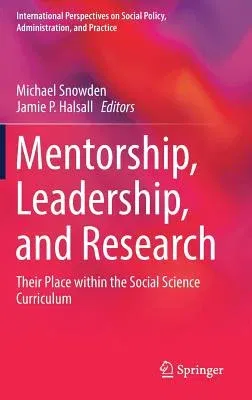This insightful volume details the implementation and challenges of the
Teaching Excellence Framework (TEF), developed in the UK to ensure equal
access to higher education for all social classes. It posits that a
modern higher education institution requires a robust set of
mechanisms - specifically mentorship, leadership, and research - to
create high-quality teaching and learning. Noted contributors pose and
answer key questions about the TEF in such areas as solution-focused
teaching, mentoring for the job market, and social science curriculum
development, using best practice examples in the field. These ideas and
strategies carry great potential to improve the caliber of teaching and
learning in universities, and with it, students' social mobility.
Among the topics covered:
- Why have mentoring in universities? Reflections and justifications.
- Working with students as partners: developing peer mentoring to
enhance the undergraduate student experience.
- The employers' reach: mentoring undergraduate students to enhance
employability.
- Learn it and pass it on: strategies for educational succession.
- Mentoring mentees to mentor.
- Interdisciplinarity in higher education: the challenges of
adaptability.
Mentorship, Leadership, and Research will play a pivotal role in UK
higher education since currently there is scant academic literature on
practical tools to help universities to succeed at the TEF. A resource
with international implications, it should interest sociologists of
education and professionals in business strategy and leadership, social
work, and community development.
Michael Snowden is a Senior Lecturer in Mentoring Studies at the
University of Huddersfield, UK.
Jamie P. Halsall is a Reader in Social Sciences at the University of
Huddersfield, UK.
"Given the recent introduction of the Teaching Excellence Framework
(TEF) in the United Kingdom, this timely book outlines effective
practices to help earn the "Gold" standard. While considering TEF within
the current climate of academic competition and critical evaluation, a
diverse group of experts lay out why mentoring is one highly effective
answer to the TEF standards and without compromising productivity in
other service and research agendas. This book is a must read for
academics and higher learning administrators alike."
Leda Nath, Professor of Sociology, University of Wisconsin

